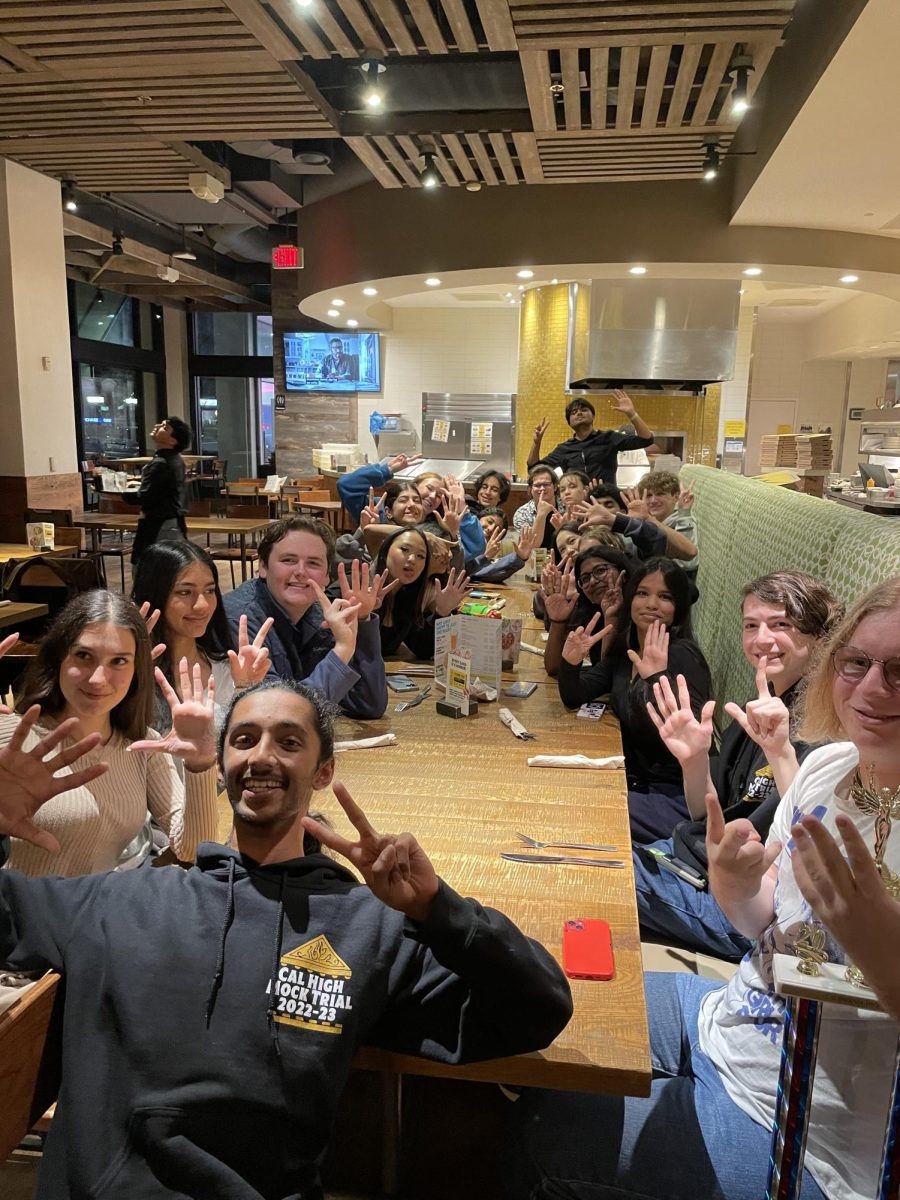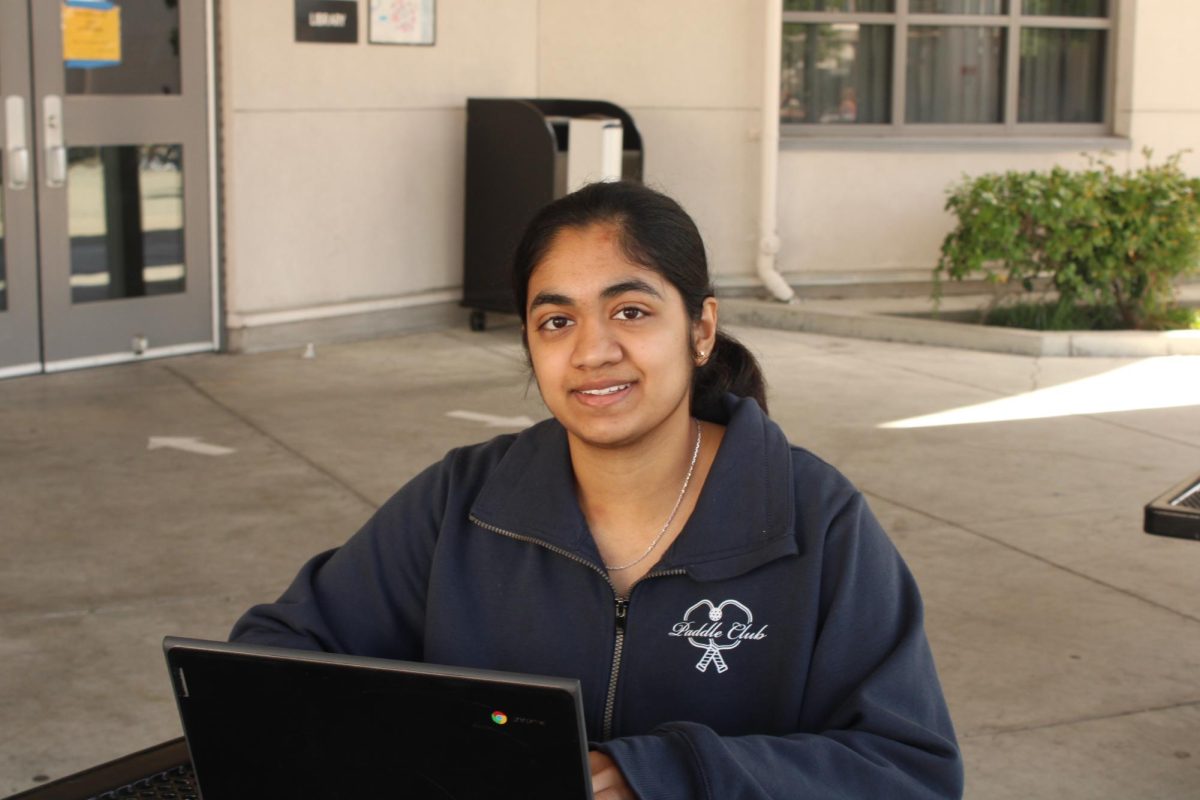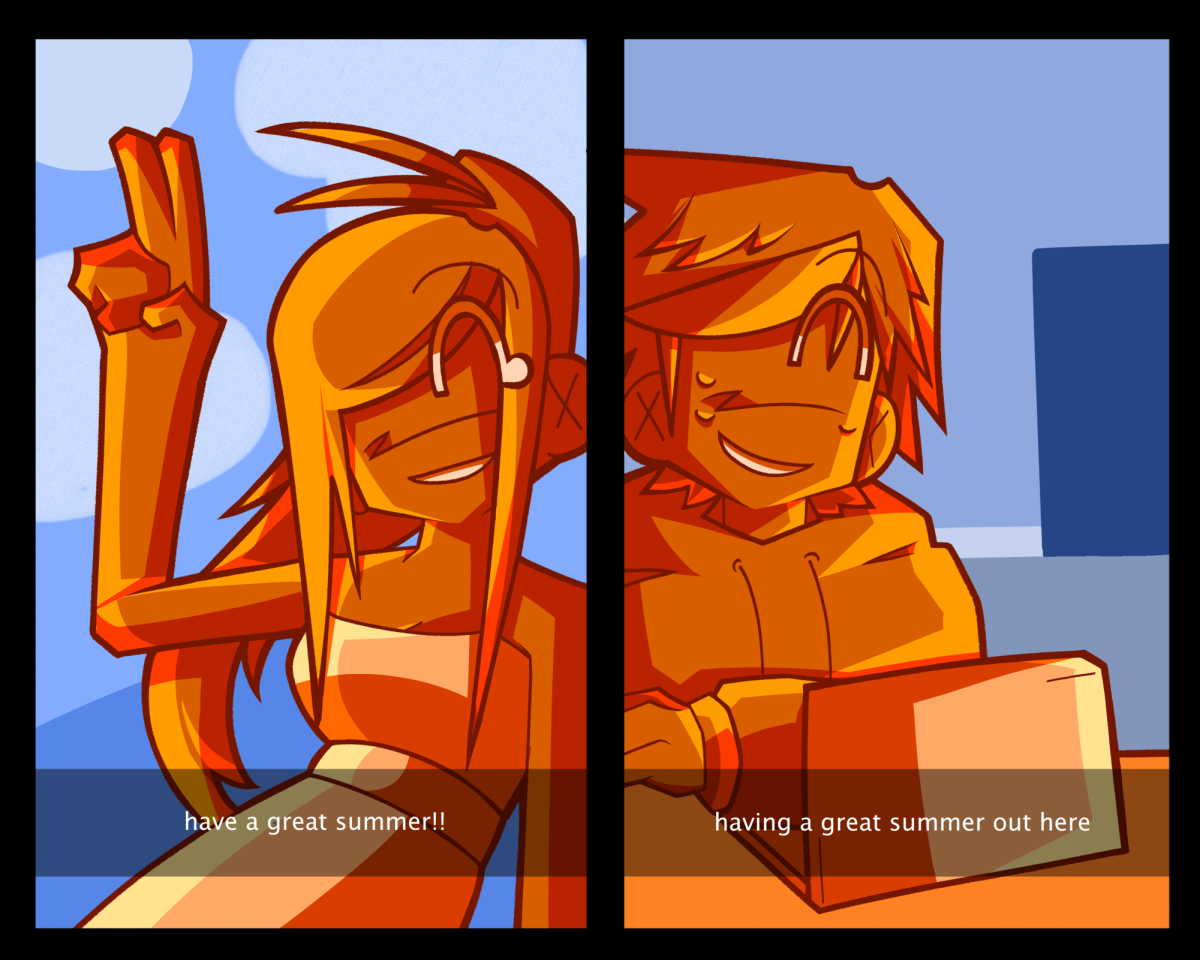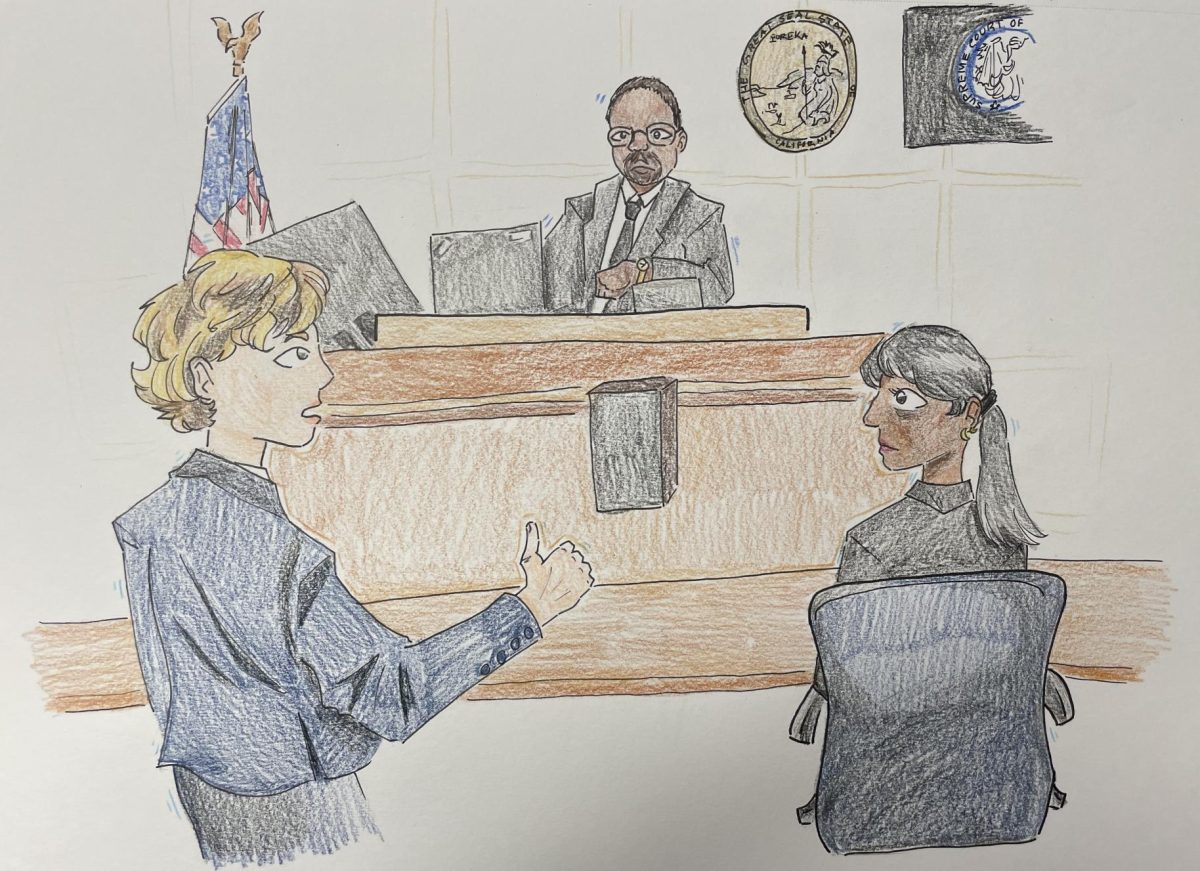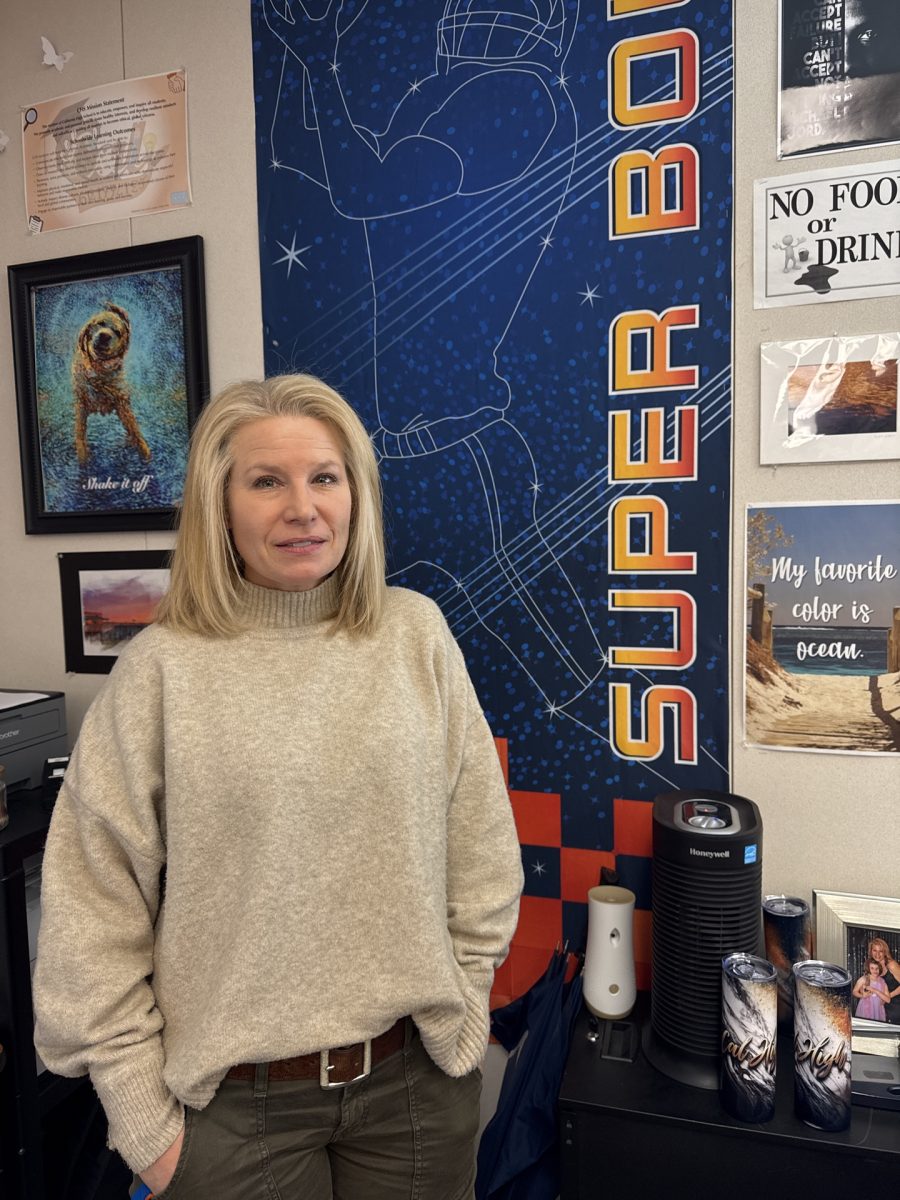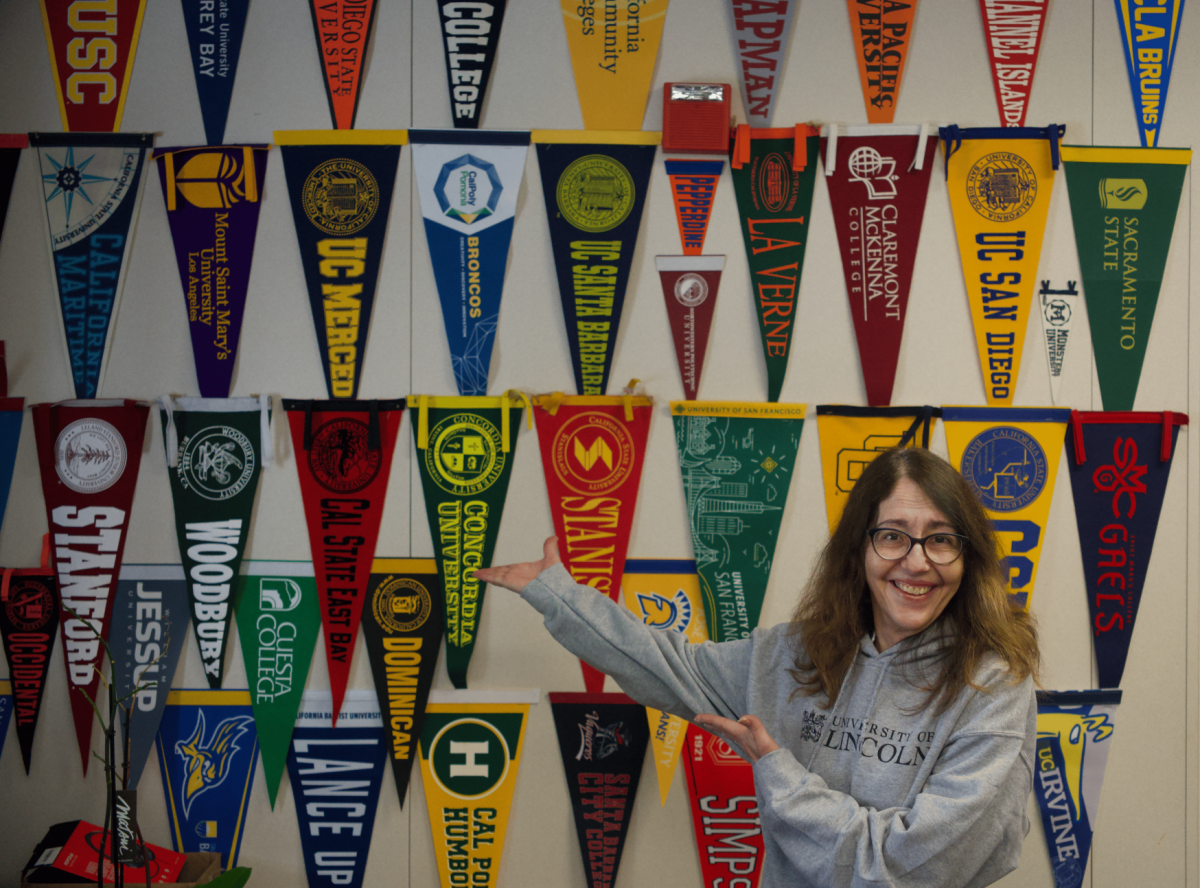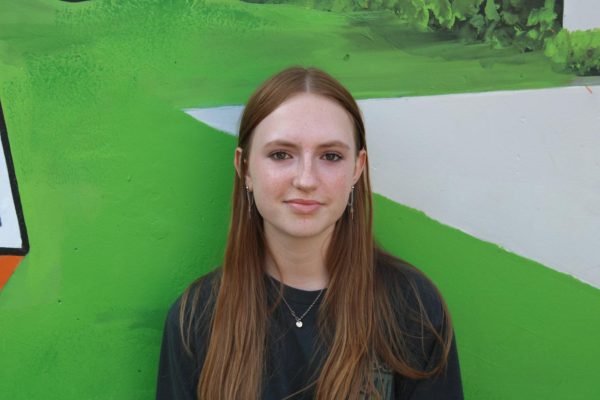Cal High’s mock trial team can’t stop winning.
After six consecutive years of winning the Contra Costa County championship, the team won the first place trophy once again last month and extended their streak to seven years.
By winning county, the team advanced to the 43rd annual California Mock Trial Finals in Los Angeles last weekend. Over the course of two days, Cal won three of its four trials and placed ninth out of 32 schools. It was Cal’s second best finish in school history and first top ten finish since 2011, when the team placed sixth.
“I’m really proud of how we did at state,” sophomore defense attorney Thaleia Karavela said. “It’s easy to get caught up in our mistakes, but our place, scores and performance was great and everyone improved so much.”
In addition to its strong finish as a team, Cal had one of its senior captains, Aarav Manjunath, honored as an outstanding prosecution pretrial attorney. Manjunath, a four-year varsity member of the team and three-year pretrial attorney, won the Honorable J. Skelly Wright Award for outstanding constitutional law advocacy.
After losing its opening night trial to Carmel on Friday, Cal ran the table on Saturday by beating Ukiah, Morro Bay and Lynbrook on Saturday. The final trial against Lynbrook from Santa Clara County determined which school finished 3-1 and placed in the top 10.
Cal and Lynbrook had faced each other this year during two other scrimmages, including one just a few weeks ago.
“Overall, it was a great experience and everyone should be happy with their effort and results,” Karavela said.
By winning county, Cal extended the longest streak of winning the competition since Contra Costa County began hosting the event in 1982.
“I think where we kind of come on top is we have a really good understanding of the rules of evidence and the law that helps us kind of shine,” senior captain Avery Cross, the team’s lead defense attorney, said.
Members of the mock trial team are part of teacher Brian Barr’s Intro to Law class, where students learn about the legal rules of evidence that help govern a trial and how to apply them in a courtroom setting.
There are 20 students on the team and 14 students on the B team, which is essentially like a JV team. The team has two pretrial captains, one captain for the defense side and another for the prosecution side.
Captains help manage the team with Barr, who also teaches an all-freshman mock trial class during the first semester.
Captains also help decide what students are going to do during class, make adjustments and changes to the team’s case during meetings outside of school, and forge strong relationships with students in the class to ensure everyone is working as a team.
Students begin the year by learning about the criminal justice system and how a criminal trial works so that they will later be able to apply it to a case. The team works with two professional attorneys, Larry Lowe and Ken Mifsud, both of whom spend countless hours working with the students.
Schools throughout the state receive a fictitious criminal case in September from the organization Teach Democracy, which hosts the state competition every March. Students learn the case and take on the roles of pretrial attorneys, trial attorneys, witnesses, and courtroom staff, which include a clerk and bailiff. They also decide whether they are going to be on the defense or prosecution side.
The prosecution represents the government and brings charges against the defendant, the person accused of the crime. The prosecution has the burden of proving beyond a reasonable doubt that the defendant is guilty.
Meanwhile, the defense represents the defendant and challenges the prosecution’s assertions and evidence by trying to create reasonable doubt in favor of the defendant.
This year’s fictitious case focused on the murder of Kieran Sunshine, the CEO of a billion-dollar medical technology company named Sunshine Medical Components (SMC), Inc.
The prosecution contended that Tobie Clark, an employee who worked as SMC’s in-house counsel, should be convicted of first-degree murder. They argued Clark had a motive to kill Sunshine when he went against Clark’s fraud plan to deceive the SMC board of directors.
The defense denied both accusations and argued Clark had no motive to kill Sunshine and no intention to commit fraud. Defense teams generally offer an alternate theory, such as another person involved in the case committing the crime.
This year, Cal’s defense team pinned the blame for Kieran’s murder on his sister, Emari, who was a prosecution witness. Each side calls four witnesses to help build their case.
After preparing and practicing their case for months, the team then headed to the four-week county competition that began in late January.
This year, there were 17 schools that competed at county at the superior courthouse in downtown Martinez.
During the first two weeks of preliminary rounds, the prosecution and defense sides each compete twice. The top eight teams then advance based on their records from the preliminary rounds. From there, it is a single elimination tournament where schools need to win to keep advancing.
Everyone’s performance for their roles is scored on a scale from one to 10. For example, a witness can earn up to 10 points for their portrayal of their character, while some attorneys can earn up to 40 points for different examinations and speeches.
The trials are generally presided over by sitting judges and scored by attorneys, law professors and sometimes law students. They generally look at students’ poise, presentation style, examination questions, and knowledge of the rules of evidence when scoring them.
For witnesses, judges look at how well students get into character, how they respond to questions and how believable they are. Barr said witnesses have to present a theatrical performance and not just regurgitate information from their witnesses statement.
The team faced an early challenge in the preliminary rounds this year after losing its second trial.
“We were getting scored down very quickly and we actually lost our first defense trial which means that if we lose two trials we’re out,” sophomore defense witness Juleana Tung said, “We had to continuously win over and over and over again.”
After a lot of perseverance and resilience, Cal won its next four trials to reach the county finals on Feb. 13, when the defense faced Campolindo High from Moraga for the second year in a row.
Cross said Campolindo had very strong presentation , which is a big part of mock trial. Cal didn’t let the pressure get to them, which allowed them to bring home another title and return to state.
This didn’t come easy for the team though. Their practice and preparation are exemplified prominantly by the trophies lining Barr’s room.
In addition to meeting every other day during first period, the team spends dozens of hours outside of class during the weeks of county competition.
Inside and outside of class, team members practice by running through the case many times. There are direct examinations, where attorneys asks their own witnesses questions to elicit information about the case. Cross examination, on the other hand, tries to poke holes in the opposite side’s case by grilling their witnesses. Practice involves a lot of asking questions and reviewing objections and responses with coaches.
Another way the team practices is scrimmaging.
“We scrimmage other schools for practice just like any athletic team would do,” Barr said. “You want to scrimmage to simulate what a courtroom situation is going to be like because any time you get into a courtroom, you’re expecting one thing, and that never happens.”
Besides the big trophy, team members gain the unparalleled experience of going into a trial with the knowledge they received from real attorneys.
“My favorite part is whenever we do our trials, we get to walk into an actual courtroom and see an actual judge sit there,” senior defense expert witness Kaartik Tejwani said.
This allows students an inside look into the experience of what it’s like to be a real lawyer.
For senior prosecution witness Ryan Lunn, the community is what makes it all worth it.
“It’s one of the most impressive groups I’ve been able to call myself a part of,” Lunn said. “It’s a lot of very smart people, a lot of people who have exactly one thing in common, and it’s mock trial.”
